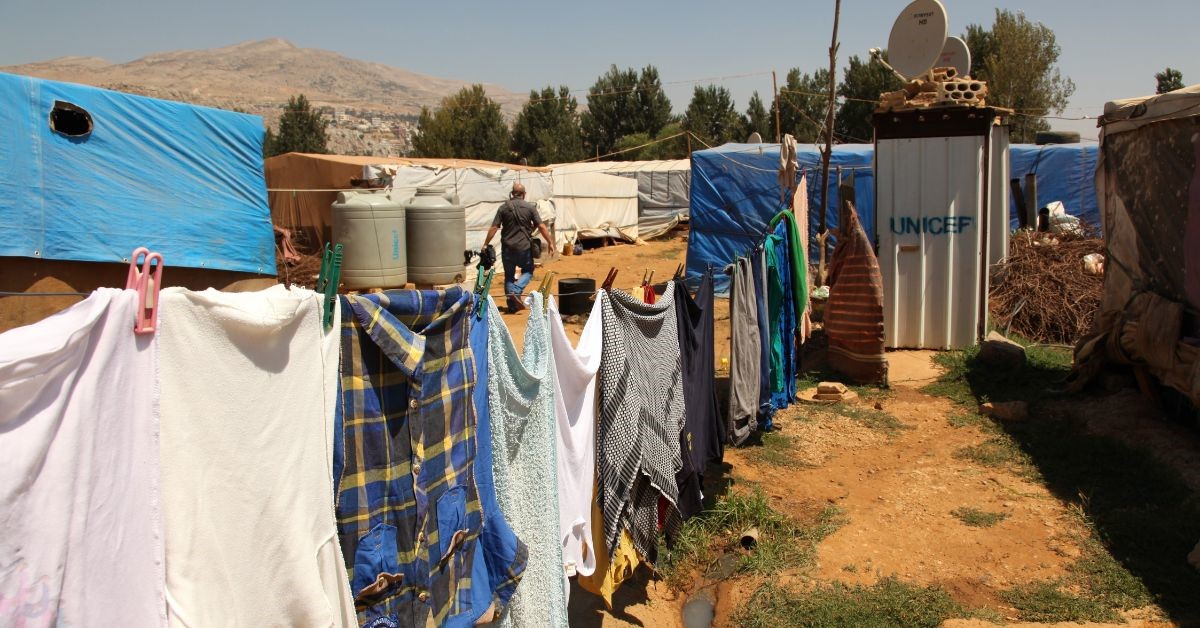The ruling class in the Lebanese government has been accused of misusing social assistance provisioning to benefit themselves and their supporters for decades. Their influence as political elites enables them to control state social institutions, skim aid from international donors and exert control over large charity organisations, ensuring their supporters are the primary beneficiaries of these.

Credit: Ahmed Janabi/Shutterstock
Lebanon is currently preoccupied with Israel and Gaza, still, there is an urgent need to reform Lebanon’s welfare system – turning it from a fragmented system that benefits elites and leaves many in need without support, to a universal social protection system that weakens the involvement of political elites and provides fair assistance to those in need.
Social assistance in Lebanon: too little, too fragmented
Evidence from the UN points out the overall low effectiveness of state social assistance programs and is critical of corruption. It also points to the need for a unified registry for citizens and non-nationals in need, with clear selection criteria for becoming a social protection beneficiary. The same report notes an urgent need for a universal social protection system for the population to access support regardless of nationality, given Lebanon’s large refugee population.
Despite Lebanon being overwhelmed by an economic crisis since 2019, which the World Bank described as the worst government made crisis the country has witnessed in its recent history, UNICEF confirms that social assistance spending, coverage and levels of support in the country are comparatively low. Spending accounts for just around one percent of GDP on non-subsidy social assistance, and four percent of GDP for subsidies. MoSA also provides institutional care for children and a pension program through other ministries. Further to this, earlier research by Cammett, M., & Issar, S. (2010) and more recently by a leading think tank, The Policy Initiative (TPI), points out that Lebanon’s political elites divert state resources to establish clientelist social protection networks and benefit their supporters.
Lebanese state accused of skimming off aid from refugee programmes
The corruption and misuse of aid has increased since the 2019 economic crisis. The central bank sets an arbitrary Lebanese rate to the dollar and takes a cut of the aid deposited by funders at the central bank since the black market operates at higher exchange rates. The former central Bank governor was charged in February on multiple charges of corruption.
Faith based organisations
So far there is no sufficient research covering the role of local NGOs’ and faith-based charities intricately related to sectarian political parties and political elites providing aid in Lebanon. Some are contracted by Ministries to provide subsidised health and education services. Academic debates focus on whether it is the most vulnerable who are being provided with assistance from local charities, or if this type of aid is provided in return for loyalty, participation in protests and voting favours, which raises questions on fairness and equitable access.
In conclusion, we can see that Lebanon is in urgent need of a fair and inclusive social protection system that has wide coverage and is equitable, efficient, transparent, and financially sustainable. The state could remove silos by establishing a universal registry and defining common, fair criteria for social provisioning as well as regulate NGOs providing social assistance. This would also re-establish trust between the Lebanese government and its population.
A change of government is in order, though unlikely in the short run, likely on the long run and could be spearheaded by a small rise of independent MP’s in the last election, who although not unified, are seriously scrutinizing government decisions. This could be complimented by a serious will from general managers of Ministries and state led institutions, to weaken the partisan, clientelistic, and political loyalties that govern the country, which is something Lebanon urgently needs.
Nadine Khayat is a partner in the BASIC (Better Assistance in Crises) research programme examining why, how and when to use social protection approaches in different crisis contexts.
